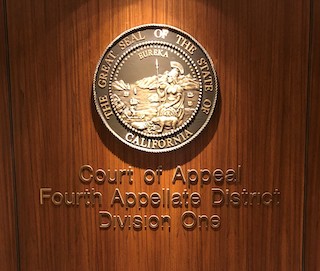On June 27, 2018, pretrial mental health diversion under Penal Code § 1001.36 went into effect as a program for certain qualified defendants facing certain qualified offenses. One of its many benefits is that upon completion of the program, defendant is rewarded with the case being dismissed and avoiding a conviction for the crime.
About two months prior to this, in San Diego Superior Court, the People of the State of California charged Danae Marie Rodriguez with felony animal cruelty (Penal Code § 597(a)) after she stabbed her small pet dog. The complaint alleged that she used a dangerous and deadly weapon (a knife) in the commission of the offense (Penal Code § 1192.7(c)(23)).
Brief Synopsis: Mental Health Diversion is not available after one is placed on probation, following a conviction, as the following case exemplified, clarifying the holding in Frahs.
On July 2, 2018, defense counsel for Ms. Rodriguez declared a doubt as to her mental competency and criminal proceedings were suspended under Penal Code § 1368. A psychiatrist then evaluated Rodriguez and found her competent to stand trial, so criminal proceedings resumed on August 31, 2018. In interim time period, Ms. Rodriguez was in custody for 48 days.
On September 24, 2018, pursuant to a negotiated plea agreement, Rodriguez pled guilty to felony animal cruelty and admitted the deadly weapon allegation. In exchange for her plea, she was granted three years of formal probation so she could continue with ongoing mental health treatment for a diagnosed bipolar disorder.
Two years later, on September 25, 2020, Rodriguez asked the judge to grant her pretrial mental health diversion under Penal Code § 1001.36, or alternatively, a reduction of her felony conviction to a misdemeanor under Penal Code § 17(b).
In support of her motion to be assigned pre-trial diversion, she argued that she was eligible for mental health diversion under People v. Frahs (2020) 9 Cal. 5th 618, in which the California Supreme Court held that mental health diversion was available retroactively under the rule of In re Estrada (1965) 63 Cal. 2d 740 to defendants whose judgments were not final when section 1001.36 went into effect.
 Fourth Appellate District Court of Appeals Div 1 San Diego
Fourth Appellate District Court of Appeals Div 1 San Diego
Rodriguez also argued under People v. McKenzie (2020) 9 Cal. 5th 40 and People v. Chavez (2018) 4 Cal. 5th 771, that the trial court retained authority to grant diversion as late as November 5, 2021, when her three-year period of probation would expire.
The prosecution opposed Rodriguez’s request for mental health diversion because, among other reasons, she failed to meet the requirement that she not pose “an unreasonable risk of danger to public safety.” Penal Code § 1001.36(b)(1)(F). It otherwise conceded that Rodriguez was not barred from eligibility for mental health diversion.
The judge assigned to the case, Howard Shore, rejected this concession from the prosecution and denied Rodriguez’ motion, saying her motion was not governed by Frahs, which was a case wherein Frahs’ plea was entered before 1001.36 became effective, but his case was on appeal at the appellate court at the time. In other words, it was a unique, factually distinguishable case.
The judge ruled that Rodriguez’s motion was barred as too late because her case had already reached “adjudication” because 1001.36 diversion is available “until adjudication.” Rodriguez’s case had been adjudicated when she entered her plea to felony animal cruelty.
The judge did not then rule on whether Rodriguez would even be qualified for mental health diversion as such a ruling would “muddy the waters.” However, the judge did grant Rodriguez’s request to reduce the conviction to a misdemeanor under Penal Code § 17(b)(3).
Rodriguez then appealed judge Shore’s ruling on mental health diversion to the Fourth Appellate District Court in San Diego.
The Fourth Appellate District affirmed Judge Shore’s ruling. It agreed with Judge Shore that where Penal Code § 1001.36 states that mental health diversion is a pretrial diversion program available, as the statute states, “at any point in the judicial process . . . until adjudication” means until a plea or conviction by a jury.
We bring this summary to the reader’s attention because creative attorneys may misinterpret the Frahs decision like counsel for Rodriguez certainly did and to show how the Fourth Appellate District, which also includes Orange County, Riverside and San Bernardino County (but not Los Angeles County), restricted mental health diversion to the time period up to one’s conviction or plea bargain.
The citation for the Fourth Appellate District Court ruling discussed above is People v. Danae Marie Rodriguez (4th App. Dist., 2021) 68 Cal. App. 5th 584, 283 Cal. Rptr. 3d 501.
For more information about mental health diversion, please click on the following articles:
 Fourth Appellate District Court of Appeals Div 1 San Diego
Fourth Appellate District Court of Appeals Div 1 San Diego